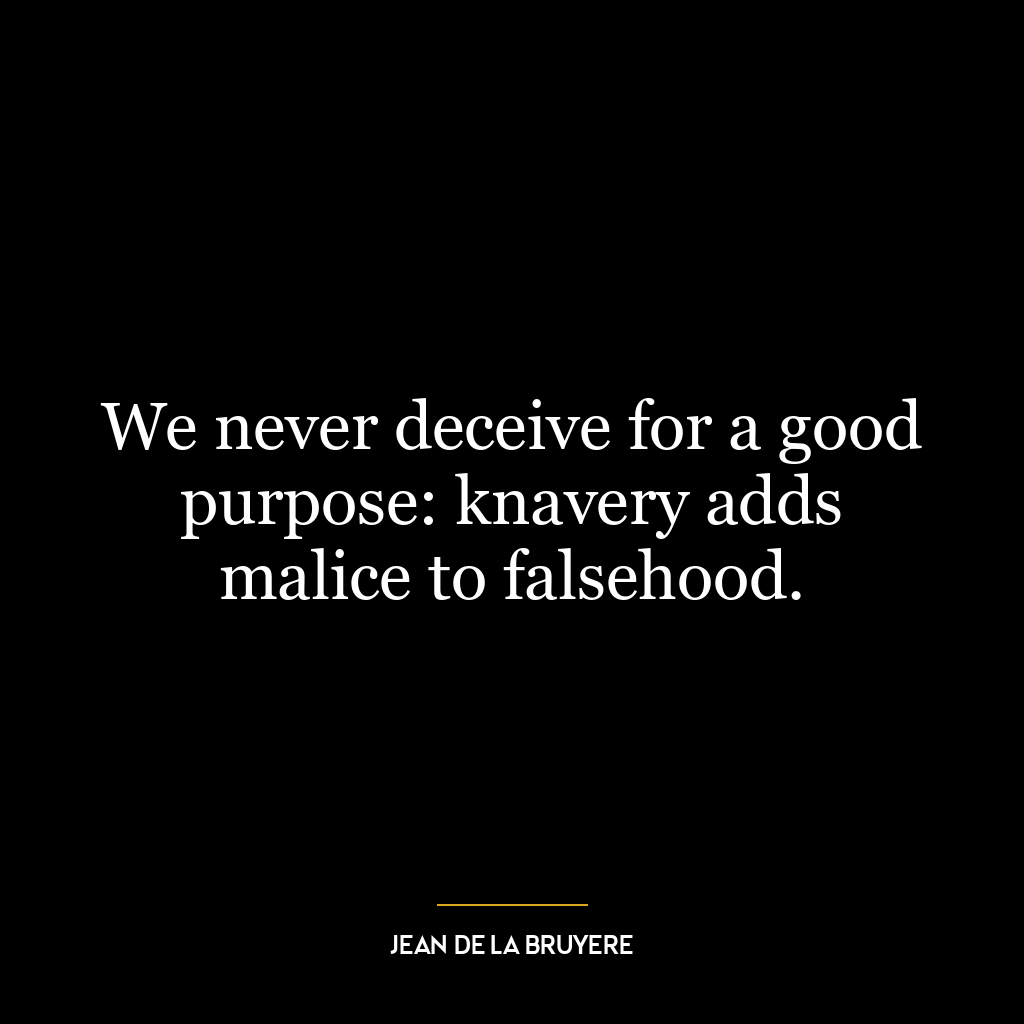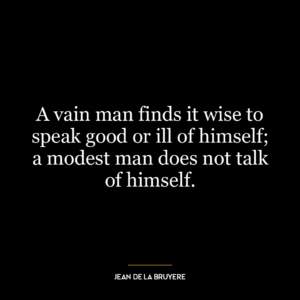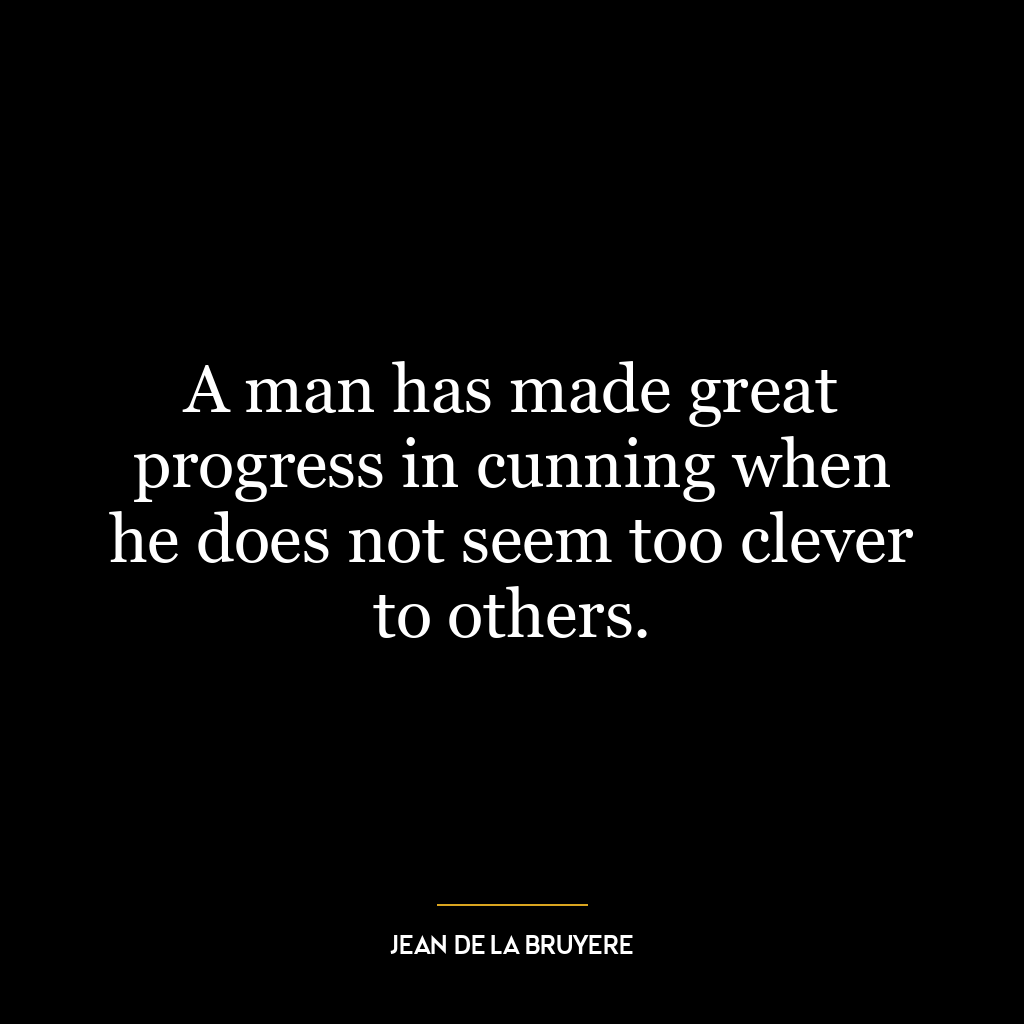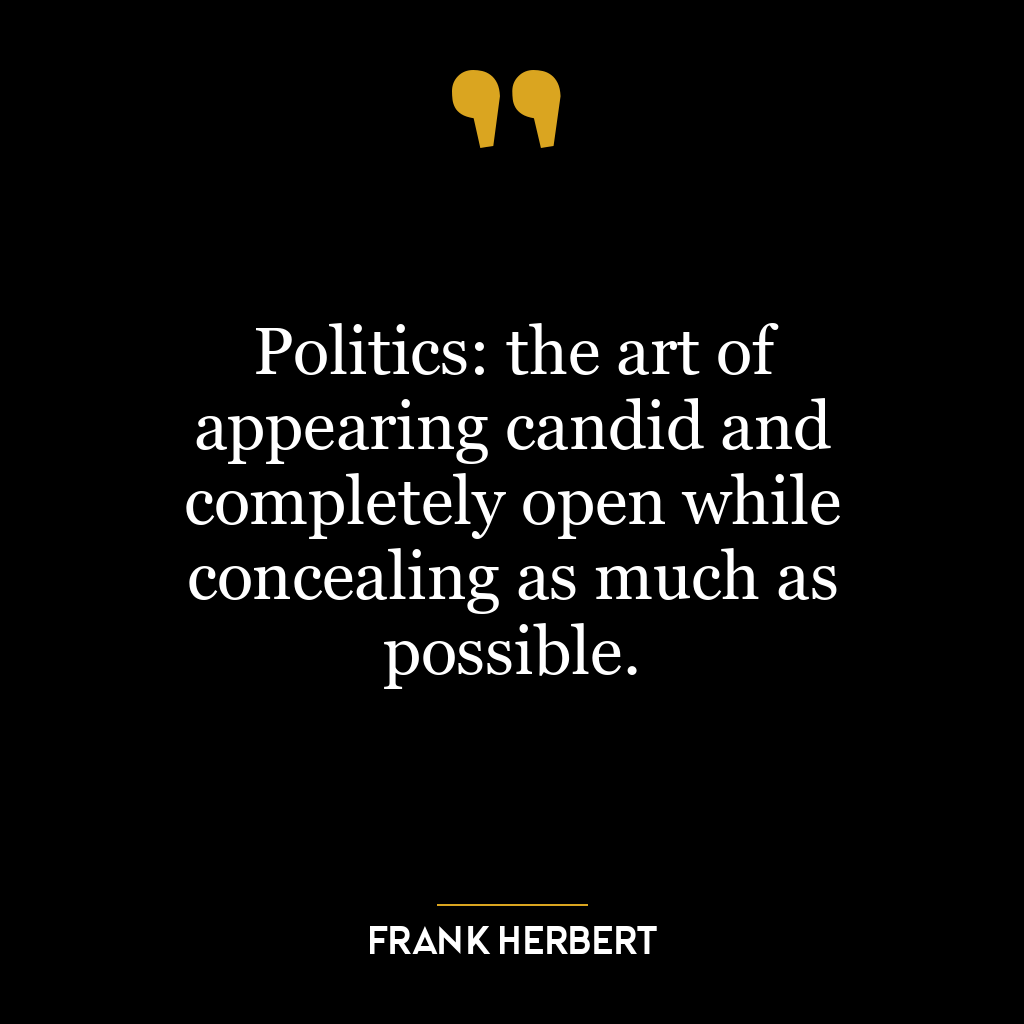This quote essentially suggests that deception, even if it is done with good intentions, is still inherently wrong. “Knavery” refers to actions that are dishonest or unprincipled, and by adding “malice to falsehood,” the quote emphasizes that dishonesty not only involves a lie (falsehood), but also a harmful intent (malice).
In simpler terms, no matter how we try to justify our deceptive actions, they are still inherently harmful, not only because they involve lying, but also because they involve a certain degree of ill intent. Even if we deceive for what we believe is a good cause, the act of deception itself is malicious because it undermines trust and promotes dishonesty.
Applying this quote to today’s world, we can see its relevance in various contexts. In politics, for instance, leaders might justify deception as a means to an end, arguing that they are doing it for the greater good. However, this quote reminds us that such actions are still fundamentally harmful, as they erode public trust and promote a culture of dishonesty.
In terms of personal development, this quote can serve as a powerful reminder of the importance of honesty and integrity. It suggests that we should strive to be truthful in all our dealings, even when it’s difficult or when we believe that deception could lead to a better outcome. It reminds us that the ends do not justify the means, and that we should uphold our principles even in the face of challenges.
Moreover, it underlines the importance of considering not just the immediate effects of our actions, but also their broader implications. Even if deception might seem beneficial in the short term, in the long term it can lead to a breakdown of trust and a culture of dishonesty. Therefore, this quote encourages us to think critically about our actions and their potential consequences, and to strive for honesty and integrity in all aspects of our lives.















